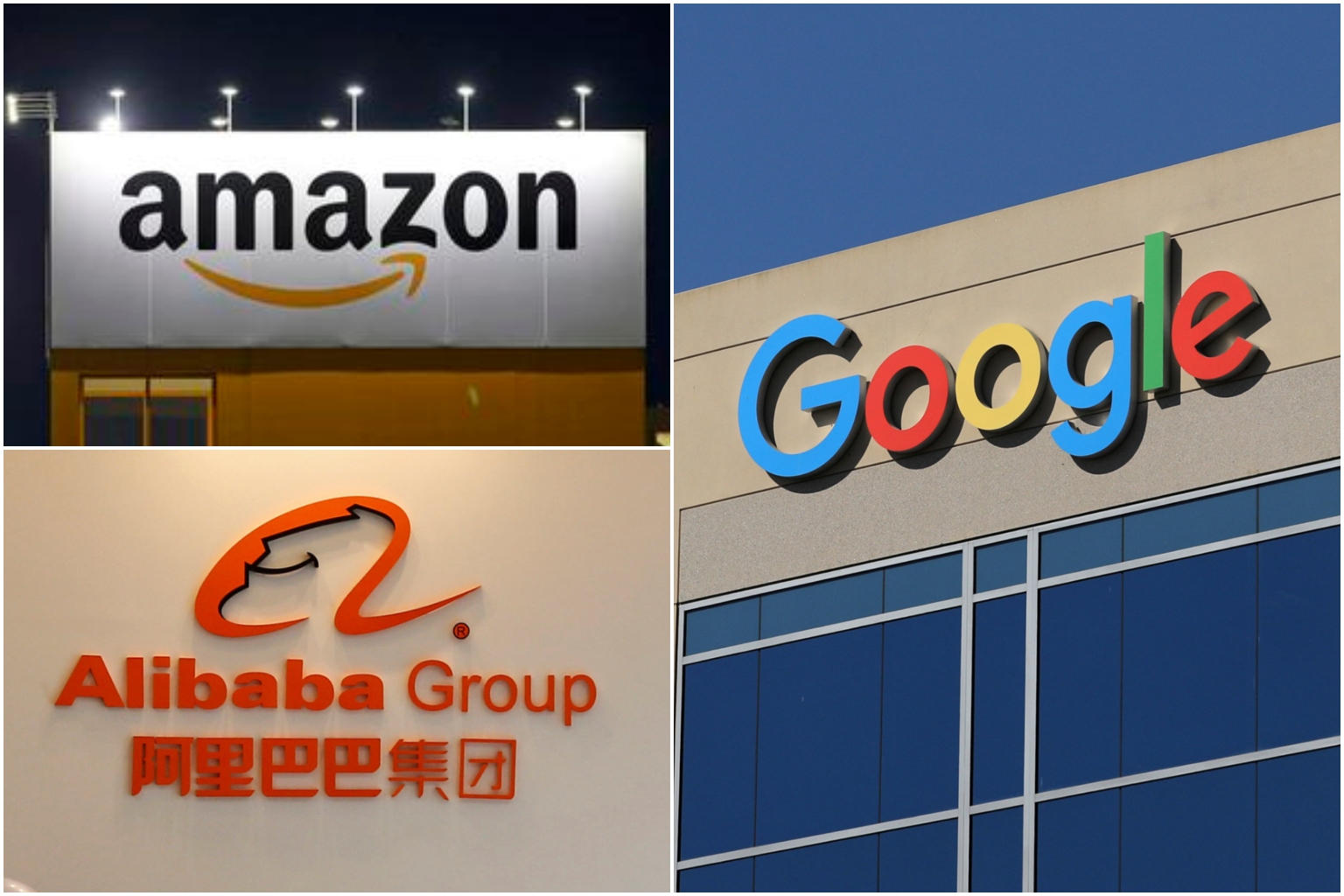Capgemini sees US$12 trillion 'Big Tech' threat to wealth management
Sign up now: Get ST's newsletters delivered to your inbox

A study found that more than 50 per cent of high net worth individuals globally are interested in wealth management involving "Big Tech" firms like Amazon, Alibaba and Google.
PHOTOS: REUTERS
SINGAPORE - As much as US$12 trillion in wealth could move to "Big Tech" firms such as Amazon, Google and Alibaba, should they decide to offer wealth management services.
Capgemini's latest World Wealth Report 2018 finds that more than 50 per cent of high net worth individuals (HNWIs) globally are interested in Big Tech wealth management. Interest among Asia-Pacific HNWIs at 81.5 per cent is the second-highest after Latin America.
Globally HNWI wealth expanded by 10.6 per cent in 2017, breaking the US$70 trillion mark for the first time. Asia-Pacific maintained its lead over North America in terms of the growth of HNWI population and wealth.
But despite the robust double-digit returns of the past two years - clients in discretionary mandates performed better than self-directed clients - Capgemini has also found that global client satisfaction with wealth managers has not risen to the degree that might be expected from the strong performance.
Singapore is in fact among a group of countries where client satisfaction declined or remained flat. Satisfaction levels among global HNWIs for firms (64.6 per cent) and their wealth managers (63.4 per cent) were higher than the previous year, but were below the "passing" mark of 70 per cent.
David Wilson, Capgemini head of Asia wealth management, said the potential entry of Big Tech and the expectation that this would happen in Asia first "create another wind of urgency that forces firms to move".
"We had two years of strong investment performance globally - 24.3 in 2016, and in 2017, 27.4 per cent; and Asia is above that. You think clients would be happy... Satisfaction did go up last year to 63.4 per cent but in my view that's not a passing grade. It's not terrible but not good. At some point, (returns) are not going to be so good. My concern will be that satisfaction isn't high now. It's certainly not going to be very high when clients start losing money."
He said the relatively low satisfaction levels may relate to issues of fee transparency, and a lack of personalisation and personal connection with their wealth manager.
The speed at which wealth managers are able to offer "hybrid" advice - giving clients a choice of an automated/self-service model, wealth manager-led advice, or a combination - could help banks to fend off Big Tech encroachment. But while there was a 3.4 percentage point increase in the number of wealth firms that have a hybrid-advice transformation under way (57 per cent), the progress lags client expectation and the Big Tech threat, said Capgemini.
Capgemini said the widespread entry of Big Techs into wealth management remains uncertain, but it is likely to be a question of "when", rather than "if". "Entry barriers include privacy and reputational issues, on top of regulatory constraints. There is a consensus among wealth management executives that Big Tech entry into wealth management will be led by Asia-Pacific, followed by North America and eventually Europe," said the report.
Capgemini expects that the Big Tech entry may be via collaboration or a blend of competition and collaboration. Nearly 60 per cent of HNWIs globally said they would be willing to begin a wealth management relationship with a Big Tech firm within a six-month period. Around 80 per cent said they would consider such a model within a year.
Big Tech firms have made great strides in payments and have also tied up with financial institutions. Amazon, for instance, partnered this year with Berkshire Hathaway and JP Morgan to look into the US healthcare market. Last year, Tencent invested US$360 million in China International Capital Corp, an investment banking firm in China. It has also secured a licence to sell mutual funds to WeChat's one billion users. Alibaba has Ant Financial wealth management arm, which claims assets under management of US$345 billion.
Meanwhile, HNWIs are "cautiously interested" in cryptocurrencies as an investment and store of value. About 29 per cent have a high degree of interest, and 26.9 per cent said they are somewhat interested.
Among HNWIs below 40, some 71 per cent place high importance on receiving cryptocurrency information from their main wealth management firms. But firms have been ambivalent on this; only 34 per cent of HNWIs globally said they have received cryptocurrency information from their wealth managers.


